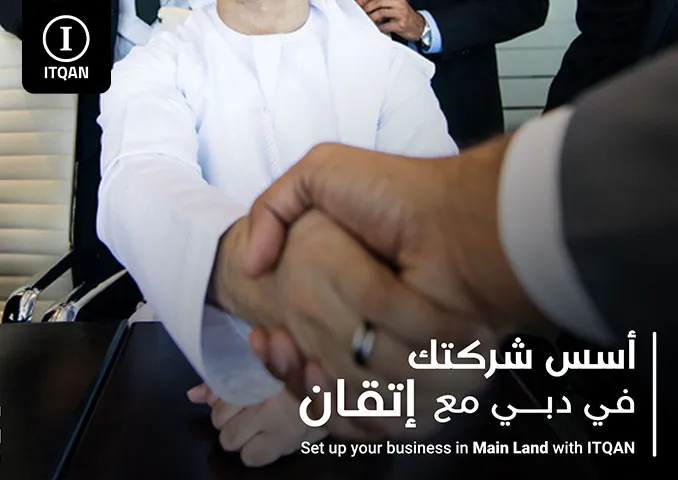How to Open a Company in Dubai as a Foreigner
Business setup UAE has become a prominent choice for entrepreneurs worldwide, especially those aiming to tap into the booming economic environment of the Middle East. Dubai, in particular, offers unparalleled opportunities for foreign investors looking to start a company in the UAE. This guide will walk you through the essential steps and considerations involved in launching a business in Dubai as a foreigner.
Key Steps for Business Setup in UAE
To begin with, starting a company in Dubai involves a set of legal and procedural requirements that you must strategically follow. Here’s an overview of the essential steps:
- Determine the nature of your business activity
- Select a legal structure suitable for your business
- Choose a business location: Free Zone or Mainland
- Get trade name approval
- Apply for a business license
- Find a local sponsor or service agent (if required)
- Open a corporate bank account
Benefits of Business Setup in UAE
The UAE, and Dubai in specific, has long been a hub for foreign investments, and for good reasons. Here are just a few advantages of starting your venture here:
- 100% foreign ownership in many sectors and Free Zones
- Zero income and corporate taxes in specific areas
- Ease of doing business with straightforward regulations
- World-class infrastructure and logistics
- Strategic geographical position linking East and West
Choosing Between Mainland and Free Zone
One of the vital decisions in starting a company in Dubai is selecting whether to operate in the mainland or one of the specialized Free Zones.
Mainland Company Setup
A mainland setup allows your business to operate anywhere in Dubai and across the UAE. One of the major changes in recent years is that foreigners can now own 100% of some mainland businesses, depending on the activity.
Free Zone Company Setup
On the other hand, Free Zones offer benefits like zero import/export duties, full repatriation of profits, and full foreign ownership. However, businesses may be limited in operating directly within the UAE market without a local distributor.
Legal Structures for Foreign-Owned Businesses
The legal structure of your business affects tax obligations, personal liability, and even the type of license you need. Some common structures include:
- Limited Liability Company (LLC)
- Sole Establishment
- Free Zone Establishment (FZE)
- Branch of a foreign company
Each has specific prerequisites and benefits tailored to business operations and investor preferences.
Getting a Trade Name and Business License
Reserving Your Trade Name
Before applying for a license, you must get your desired trade name approved by the Department of Economic Development (DED). Ensure the name complies with UAE naming conventions and is not already registered.
Applying for a License
You’ll need the appropriate license depending on your business activity. The main types include:
- Commercial License
- Professional License
- Industrial License
Finding a Local Sponsor or Service Agent
Although regulations now allow full ownership for many activities, some businesses still need a local service agent for compliance. These agents do not hold equity but act as representatives before UAE authorities.
Opening a Corporate Bank Account
With your license and legal setup finalized, the next step is to open a corporate bank account. Documentation usually includes:
- Business license
- Shareholder details
- Business plan
- Passport copies
Different banks have different requirements, so consult with your local consultant or bank for specifics.
Common Challenges and How to Overcome Them
Despite the numerous benefits, foreign investors may face initial challenges such as bureaucratic complexities, cultural differences, and finding the right local partners. These can be mitigated by:
- Hiring local business consultants
- Attending networking events to understand the market
- Researching thoroughly before selecting jurisdictions
Cost of Business Setup UAE
The cost varies depending on multiple factors such as license type, location, office space, and visa requirements. Generally, Free Zone setups can range from AED 12,000 to AED 50,000 annually, while Mainland businesses may have different structures and slightly higher costs.
Required Documents
To streamline your registration process, have these documents prepared in advance:
- Completed application form
- Business plan (for Free Zone setups)
- Passport copies of all shareholders
- Visa copies (if applicable)
- No Objection Certificate (NOC) from current sponsor, if under a UAE visa
Growth Opportunities in Dubai’s Market
Dubai is expanding across multiple sectors including tech, finance, e-commerce, and tourism. With government initiatives such as UAE Government Portal and the vision for a digital economy, business owners have abundant support and endless opportunities for expansion.
Final Thoughts on Business Setup UAE
Opening a company in Dubai as a foreigner is a promising venture, thanks to favorable laws, economic stability, and unmatched global connectivity. Whether you plan to operate within Dubai or use it as a base to expand globally, understanding the key requirements of business setup UAE will ease your journey.
For more insights on selecting the ideal business zone, be sure to read our in-depth guide: Best Free Zones in UAE for Business Setup.












